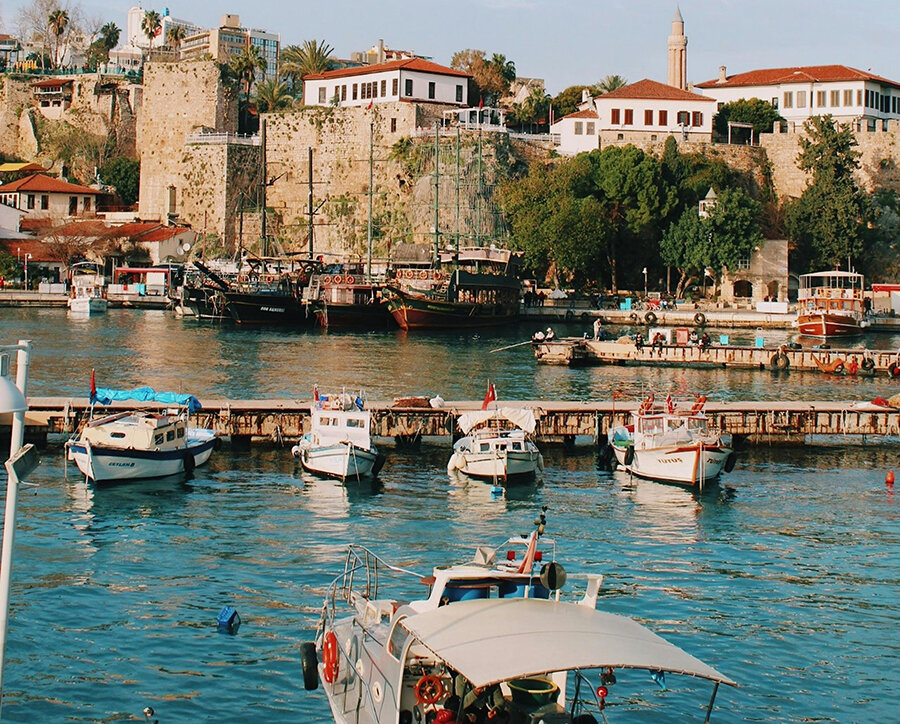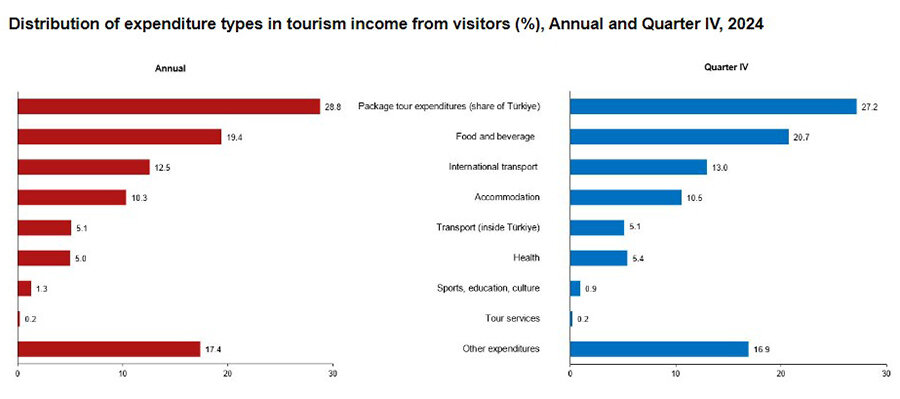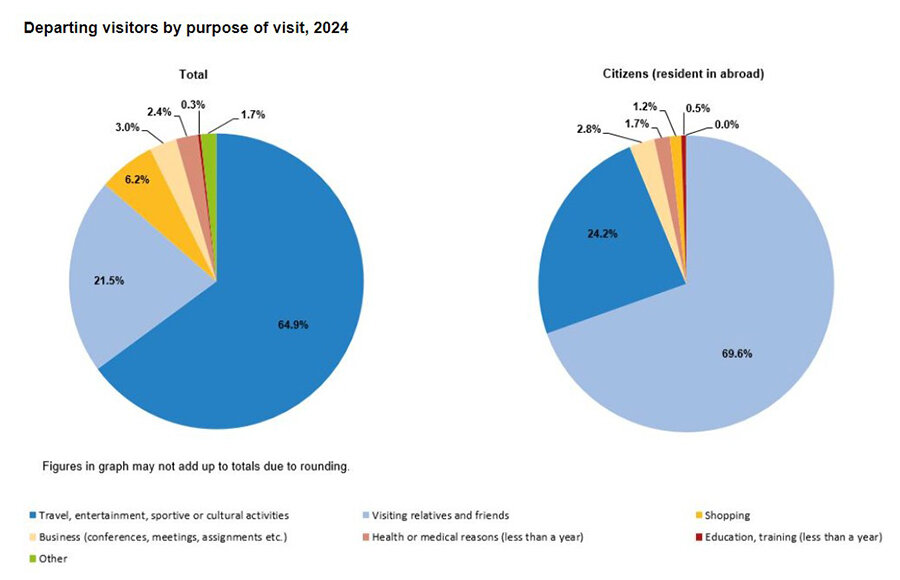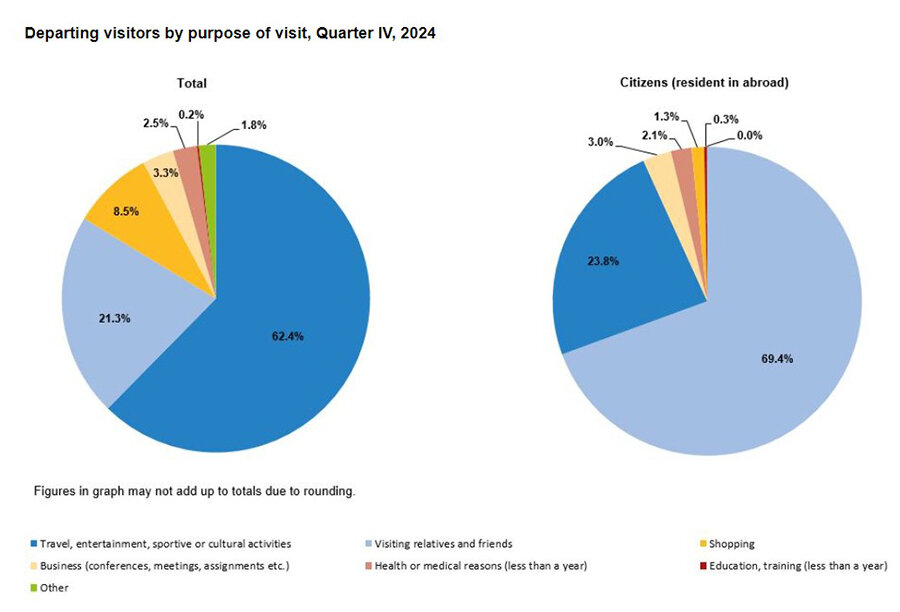Russians and Germans Were the Most Frequent Tourists in Turkey in 2024

The Turkish Statistical Institute published a report on the tourism sector for the fourth quarter and the entire year of 2024. Russians, Germans, and Britons led in the number of foreign visitors. High figures were also recorded for travelers from Iran and Bulgaria. A significant number of guests also arrived from Georgia and the United States.
Russian citizens increased their visits from 6.3 million in 2023 to 6.7 million in 2024 (+6.3%). The tourist flow from Germany rose from 6.1 million to 6.6 million. The UK contributed 4.4 million visitors, Iran 3.2 million, and Bulgaria 2.9 million. In total, 52.6 million foreign tourists visited Turkey in 2024, surpassing the numbers from 2019 (over 45 million) and 2023 (49.2 million).
Tourism Revenue in Turkey Grew by 8.3% in 2024
Turkey's tourism revenue increased by 8.3% in 2024, reaching $61.1 billion. A share of 17% came from Turkish citizens residing abroad. Individual travel expenses amounted to $43.9 billion, while package tours contributed $17.4 billion.

In the fourth quarter of 2024, tourism revenues grew by 14.5%, reaching $13.7 billion. Nearly $10 billion came from individual travel expenses, while package tours accounted for $3.7 billion. The average cost of accommodation per night was $97, while for Turkish citizens returning from abroad, it was $63.
Tourists Spent More on Package Tours in 2024
The highest share of spending in 2024 was on package tours—28.8%, an increase of 22.7% compared to 2023. Dining and beverages ranked second at 19.4% (+7.4%), followed by international transport at 12.5% (+0.9%). In the fourth quarter, the distribution remained similar, but international transport spending saw a 5.2% year-on-year increase. Most tourists visited Turkey for travel, entertainment, sports, and cultural activities (64.9%), while Turkish citizens living abroad primarily traveled to visit family and friends (69.6%).



Turkish Economy and Tourism Sector Challenges
The Turkish economy has begun to stabilize, with the Central Bank of Turkey cutting the key interest rate for the first time in nearly two years—from 50% to 47.5% in December 2024. However, inflation remains high at 21%, far from the mid-term target of 5%, with risks that could further strain Turkey’s economy.
At the same time, negative trends are emerging in the tourism sector. In Antalya, authorities have already shut down 50 hotels following the tragic fire at the Grand Kartal hotel in the Kartalkaya ski resort, where 78 people died on January 21, 2025.
The Turkish government has launched massive inspections of the hospitality sector across multiple regions, including Istanbul. Authorities are primarily targeting unlicensed accommodations and hotels lacking mandatory certifications. Fire safety systems are under stricter scrutiny as the disaster exposed serious oversight issues in Turkey's regulatory mechanisms.
Many hotel owners complain about increased pressure, citing heavy fines, temporary closures, and stricter certification requirements. While the primary focus remains on high-risk accommodations, stricter regulations may soon apply across the entire industry. It is still unclear how many hotels will remain operational by the start of the next season.








